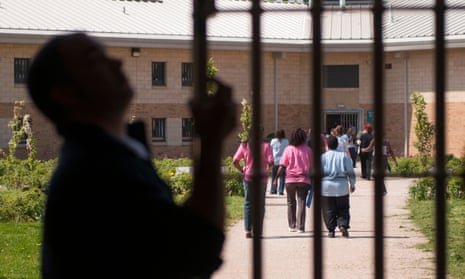Self-harm has increased among female prisoners during the coronavirus pandemic and some are being released without anywhere to go, inspectors have said.
Inspectors, who carried out scrutiny visits on 19 May, said they were troubled by the impact of new restrictions at three female-only prisons - Bronzefield, Eastwood Park and Foston Hall.
The restrictions were aimed at helping to control the spread of the virus but the inspectors were concerned about the suspension of specialist support for some of the most vulnerable women.
Peter Clarke, the chief inspector of prisons, said: “We found that self-harm had increased from the high levels seen prior to the restrictions being implemented.”
Despite enhanced welfare checks and support in place at Bronzefield and Eastwood Park, Clarke said: “We were concerned about the impact of the very sudden withdrawal of a range of interventions from a small number of prisoners with very high levels of need.”
An inspectors’ report noted: “Despite the work of staff, the very restricted regime meant prisoners at risk of self-harm felt isolated from others and craved more human contact.”
Prisoner release schemes were “undermined by the lack of accommodation for many on release”, according to Clarke.
He said: “Since the start of the restrictions, 40% of prisoners released from Bronzefield and Eastwood Park and 20% of those release from Foston Hall had no accommodation on the day of their release.”
The inspectors’ report on the scrutiny visits added: “This was not a safe way to release potentially vulnerably prisoners, especially during a pandemic.”
Efforts to reduce the amount of inmates through release schemes had proved largely ineffective as significant numbers of new prisoners were admitted.
Under the new restrictions, face-to-face visits and education sessions had stopped and prisoners were allowed out of their cells in smaller groups.
The inspectors were concerned by the absence of any organised physical education provision and they said that social distancing was not routinely observed at Bronzefield.
They said video-based “visits” not been set up and some women had not seen their children for two months.
The report comes as children separated from their mothers, and the prisons minister Lucy Frazer, are set to give evidence to the joint committee on human rights on Monday.
Details about the significantly restricted daily regimes were well communicated by staff who maintained positive relationships with prisoners, the inspectors added.










